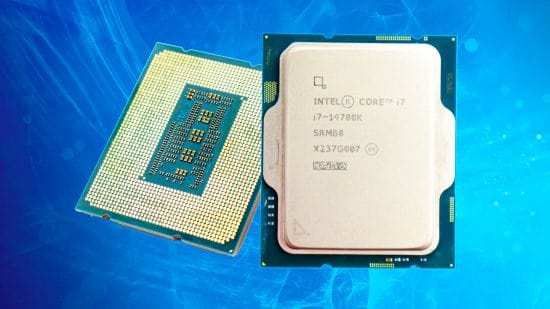

Take a breath of relief Updated: Oct 5, 2024 5:44 pm WePC is reader-supported. When you buy through links on our site, we may earn an affiliate commission. Prices subject to change. Learn more Table of Contents Table of Contents Intel has now confirmed 0x12B microcode as the final mitigation for the Vmin instability issues affecting its 13th and 14th Gen CPUs. After Gigabyte had recently confirmed on the support page of on one of their motherboards, Intel has now confirmed to the Verge that the instability issues causing lower performance have been solved. According to Intel, the latest 0x12B microcode patch which is now available by motherboard vendors as a BIOS update, is the final mitigation against instability issues and should resolve all previous issues. Team Blue has also narrowed down the root cause of the unusual instability and crashes which wasn’t clear before. Intel provided the following statement to Verge: Yes, we’re confirming this is the cause and that it is fixed Intel spokesperson Thomas Hannaford Intel 0x12B microcode BIOS patch marks the end of instability crashes Intel has identified four issues with the Raptor Lake processors, each of which has been addressed with a mitigation over the past year. The latest 0x12B update includes all previous mitigation and the blue team has confirmed that no further updates will be required now. Motherboard power delivery settings exceeding Intel power guidance.a. Mitigation: Intel Default Settings recommendations for Intel Core 13th and 14th Gen desktop processors.eTVB Microcode algorithm which was allowing Intel Core 13th and 14th Gen i9 desktop processors to operate at higher performance states even at high temperatures.a. Mitigation: microcode 0x125 (June 2024) addresses eTVB algorithm issue.Microcode SVID algorithm requesting high voltages at a frequency and duration which can cause Vmin shift.a. Mitigation: microcode 0x129 (August 2024) addresses high voltages requested by the processor.Microcode and BIOS code requesting elevated core voltages which can cause Vmin shift especially during periods of idle and/or light activity.a. Mitigation: Intel is releasing microcode 0x12B, which encompasses 0x125 and 0x129 microcode updates, and addresses elevated voltage requests by the processor during idle and/or light activity periods. What does Intel plan for the affected CPUs? With the 0x12B updates slowly rolling out, Intel believes that downloading these BIOS updates for your motherboard should keep your CPU from showing signs of deterioration. However, if things are not looking for your chip, Intel suggest returning the chip under warranty as soon as possible. On top of that, Intel is providing extended warranties (+2 years) on all 14th and 13th-generation CPUs, allowing users with degraded chips to receive replacements. Additionally, patches can be applied to these new chips to ensure stable performance. To be clear, The BIOS and microcode updates will not fix processors that already are experiencing instability from Vmin shift. Customers experiencing instability symptoms on 13th and 14th Generation desktop processors should contact their Intel representative, system manufacturer, or place of purchase. Intel spokesperson Mark Anthony Ramirez As for their future products, Intel has confirmed that its laptop chips and all other desktop chips are not affected by this issue. Source: The Verge






